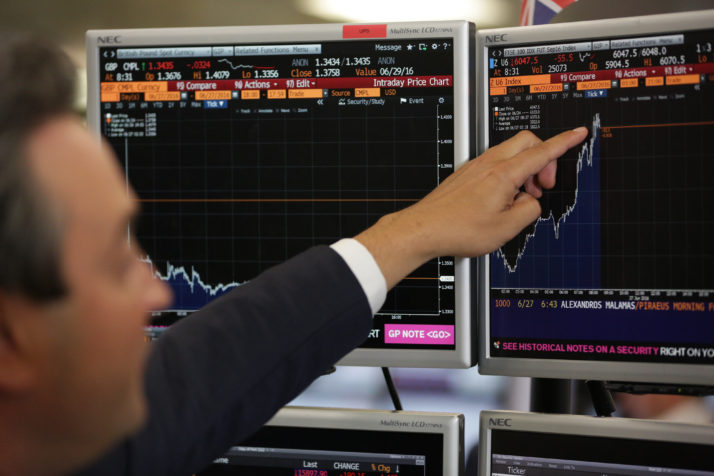European stocks are making small gains again on Tuesday, benefiting from the relatively calm start to the week.
The US returns following the bank holiday weekend which could see activity pick up, with particular focus on what the various central bankers have to say. Jerome Powell’s testimony in Congress on Wednesday and Thursday will naturally be the highlight but in this rapidly changing environment, all views will have the potential to get things moving.
There’s no doubt that the next few days have far more on the calendar so investors may take the opportunity to breathe and take stock of the situation. It’s been a turbulent couple of weeks and the rest of the summer is likely to bring more of the same so these periods of reflection are welcome.
With that in mind, these small recoveries in stock markets shouldn’t provide any comfort. Everyone is hunting for the bottom but there’s a huge cloud of uncertainty over the outlook and the data isn’t yet showing any encouraging signs. Recession is increasingly becoming the base case and so equities are vulnerable to further losses.
Oil risks remain tilted to the upside
Oil prices are around 1% higher, continuing to recover from Friday’s sharp sell-off. The oil market remains extremely tight but it seems the rising threat of recession created a compelling argument for it to correct lower last week. There’s no doubt that a recession could help rebalance the market and pull prices lower but for many, that is not the base case. So any corrections are still likely to quickly see a flurry of buyers, as we’re now seeing.
In the same way that Chinese lockdowns slowed rallies in recent months, the increasing threat of recession could do similar over the summer. That said, the risks remain tilted to the upside as supply simply can’t keep up with demand.
Gold could be rangebound for a while
We’re still seeing plenty of indecision and choppiness in gold. It struggled to build on the momentum of last week’s surge and is now on course for a third day in the red. That’s not a particularly bearish signal, more a reflection of how the week has started in the markets. The absence of the US makes it hard to read too much into the moves until now.
The key level to the downside remains $1,800, with $1,870 the big test above. It wouldn’t be a surprise to see the yellow metal fluctuate between these two levels for a while longer yet.
Bitcoin remains vulnerable
Bitcoin is holding on in there after breaking $20,000 over the weekend but despite breaking back above here early in the week, it remains highly vulnerable to another plunge below. I can’t imagine all of the negative headlines are behind us as far as the crypto industry is concerned and the wider financial market environment remains unfavourable.





























